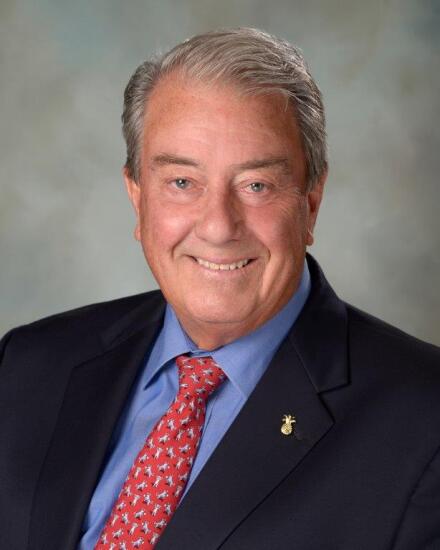From missing recipe boxes to unwanted gift horses, even the best estate plans can fall apart when clients' emotions get involved. We talked with planners about the silliest situations they’ve seen blow up estate plans.


Mitchell Krauss
Capital Intelligence Associates
Santa Monica, California
Kraus recalls clients who split up their estate equally between their three children.
After the parents died, the two brothers told their sister they wanted to get an additional $30,000 each before the three distributed the rest of the estate.
“They explained that because Mom and Dad sent the sister to private college and the brothers to in-state colleges—spending $30,000 more on her education—they deserved that money first,” Kraus says.

David Demming
Demming Financial Services Corp.
Aurora, Ohio
Demming’s clients knew that their daughter wasn’t good with money. So, they left her an irrevocable trust with their attorney as trustee.
After they died, Demming’s firm terminated its FINRA registration, moving the accounts to an all-fee platform.
The daughter found an attorney who claimed he could break the trust, so she fired the attorney trustee.
“That left the assets in nowhere land,” Demming says. “We are working again with the rehired attorney almost four years later to salvage some of the remaining assets.”

Scot Hanson
EFS Advisors
Shoreview, Minnesota
One of Hanson's clients treasured her tea sets and told her granddaughters that they would one day be theirs.
She even wrote the intended heir’s initials on a piece of tape and stuck the tape on the bottoms of each tea cup.
“When Grandma eventually died, the granddaughters found that the tape was gone,” Hanson says. A cousin said that Grandma had given her the entire set. “Nothing could be proven, but it did leave bad feelings,” he says.

David Blain
BlueSky Wealth Advisors
New Bern, North Carolina
Pleasanton, California
Santa Clara, California
A wealthy, childless client couple loved their horses and wanted to make sure they were safe and well no matter what, Blain recalls.
“They had a proper estate plan, naming trusts for the money and caretakers for the horses. Unfortunately, they never actually checked with the people they named as caretakers to see if they wanted to inherit and take care of horses," he says.
They weren’t interested. At the same time, the wife’s relatives decided that they were entitled to the money set aside for the horses, and filed a lawsuit against the state. Legal fees consumed much of the estate and the horses were sold at auction.

Jon Ten Haagen
Huntington, New York
Ten Haagen is working to combine two parents’ estates and distribute it to multiple heirs.
“The problem is that each heir thinks he is a genius and knows the best way to distribute the assets,” Ten Haagen says. “The executor suggested opening five accounts and dividing the positions into each. Currently, we are sending the positions to a broker at a wirehouse that another sibling thinks is not in cahoots with the executor. I see this as a big waste of time. It’s certainly delaying the distribution.”
Ten Haagen’s suggested fix?
“Liquidate the positions and send the money to each sibling,” he says, adding that none of the positions would be adversely affected.

Michael Resnick
GCG Financial
Deerfield, Illinois
Resnick often sees clients with collectibles and multiple heirs.
“Whether it’s the classic car collection or the baseball card and autograph collection, there may be great meaning for one beneficiary, while another may only see the value in selling the collection,” Resnick says. “If your granddaughter loves your baseball cards but your grandson wants to sell them, Grandpa needs to make his wishes known beforehand.”
Resnick has seen other disasters as well.
“We reviewed an estate plan and realized that Grandma was bequeathing the same ring twice, by accident, to her two granddaughters," he said.

Austin Frye
Frye Financial Center
Miami
Sometimes it really is the little things that matter most.
A client of Fryes left his daughter and son $1.5 million. They ended up fighting over a ring.
“The son remembers Dad in the hospital wearing his favorite pinky ring, which was set with a green jade stone. When Dad died, the hospital gave his personal effects to his daughter,” Frye says.
But there was no ring. The daughter claims she didn’t receive it. The son is sure that she has it.
“The ring never surfaced and the siblings never spoke to each other again,” Frye says.
In another situation, a mother left $800,000 to her two daughters and one son.
“But Mom’s recipe box went missing,” Frye says. “It contains heirloom recipes from earlier generations.”
One sister suspected the other of stealing the box while their mother was in the hospital. Now the sisters barely speak to each other. The recipe box is still missing.

Lili Vasileff
Divorce and Money Matters
Greenwich, Connecticut
One of Vasileff's clients is part of a family in which a vacation property, held by a trust, is passed from generation to generation.
The client had an interest in the trust and lived in the house most of the time. She and her husband built a second, smaller home on the same property and used it when the whole family took over the main house.
Then the couple divorced and couldn’t agree on who would get the second home. “The judge ordered both the second house and the trust interest sold, the exact opposite of what both parties wanted,” Vasileff says. “They lost both, their children lost both, and her siblings had to come up with the money to buy out her share of the trust.”





